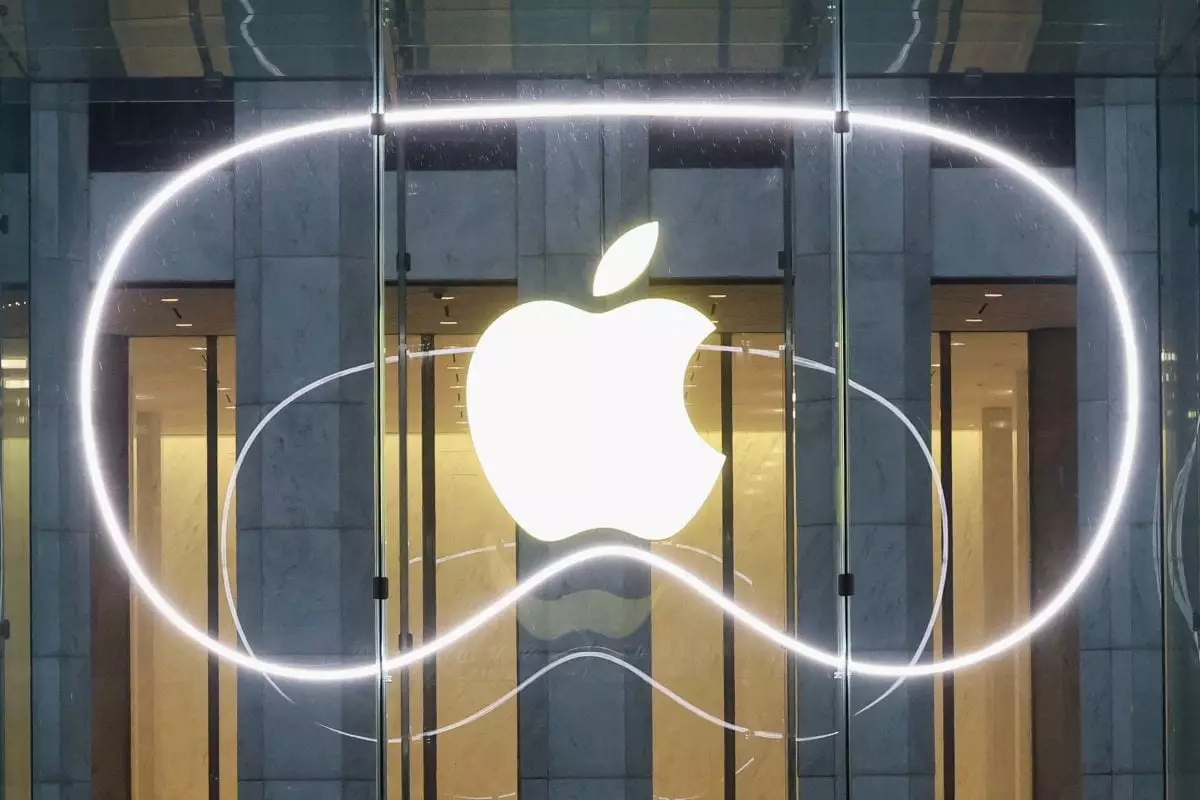In the rapidly evolving landscape of corporate labor relations, Apple finds itself at the center of serious allegations from the U.S. National Labor Relations Board (NLRB). The company’s practices regarding employee rights have come under scrutiny, especially concerning the mechanisms available to workers for collectively advocating for improved work conditions. These accusations highlight the tension between corporate policies and employee rights, raising significant questions about the balance between operational control and individual freedoms in modern workplaces.
The NLRB’s recent complaint against Apple is far from an isolated incident. Earlier this month, the agency had already filed another complaint against the tech giant, citing issues related to illegal confidentiality agreements and overly broad policies restricting employee misconduct and social media interactions. The latest allegations include claims that Apple unlawfully restricted its employees from using workplace messaging services, such as Slack, to discuss their concerns regarding work conditions. This restriction includes accusations of retaliatory actions against employees who dared to express their views, pointing to a potentially toxic workplace culture that stifles dissent.
According to the NLRB complaint, Apple’s enforcement of a policy requiring managerial approval for creating new Slack channels has serious implications for internal communication. Furthermore, the stipulation that employees must direct posts about workplace concerns exclusively to management or human resources raises fundamental questions about transparency and the free flow of information.
At the heart of the current allegations is the case of Janneke Parrish, a former Apple employee who claims she was terminated due to her active role in employee advocacy. Parrish utilized various platforms, including Slack and public social media, to campaign for significant workplace issues, such as pay equity and better working conditions. Her case reflects a broader trend of employees feeling compelled to advocate for their rights through social media, particularly during times of crisis, such as the COVID-19 pandemic, which accelerated the need for remote work arrangements.
Parrish’s situation illustrates the precarious position of employees who actively engage in advocacy against perceived injustices within their organizations. With claims of gender and racial discrimination rife within her assertions, the accusations against Apple delve into deeper societal issues that resonate far beyond the tech giant itself. If Parrish’s claims are substantiated, this could lead to critical discussions regarding corporate accountability and the organizational structures that allow, or even encourage, such discrimination.
Should negotiations fail, the matter is set to progress to an administrative hearing where all claims will be examined in greater detail. Apple, for its part, has been vocal in denying the allegations, asserting a commitment to a positive workplace atmosphere. The tech giant insists that it respects employees’ rights to discuss critical facets of their employment, such as wages and working conditions. However, such statements may ring hollow if evidence supports the allegations of punishment for dissension.
The resolution of this case will hold significant implications not just for Apple but for the tech industry as a whole, leading to possible shifts in how companies address employee grievances and manage internal communication. As the NLRB increasingly becomes a champion for labor rights, its decisions could influence broader regulatory changes affecting the policies of corporations across the country.
The situation with Apple serves as a vivid reminder of the ongoing struggle for workers’ rights in a corporate environment often perceived as overreaching. It begs the essential question of how much control companies can exert over their employees’ communications, especially as social media and digital messaging platforms become integral to modern work culture.
As labor rights activists and organizations advocate for improved conditions, the outcome of this case has the potential to instigate a domino effect across various industries. An affirmative ruling from the NLRB could lead to more stringent regulations on corporate practices regarding employee expressions, ensuring that workers are afforded the safe space to communicate and engage in collective bargaining without fear of retaliation.
As Apple prepares to defend its practices before an administrative judge, the implications of this case will undoubtedly resonate within the tech world and beyond. Employees’ rights to advocate for change must be upheld, and companies need to adopt practices that encourage transparent communication and equitable treatment of all workers.

